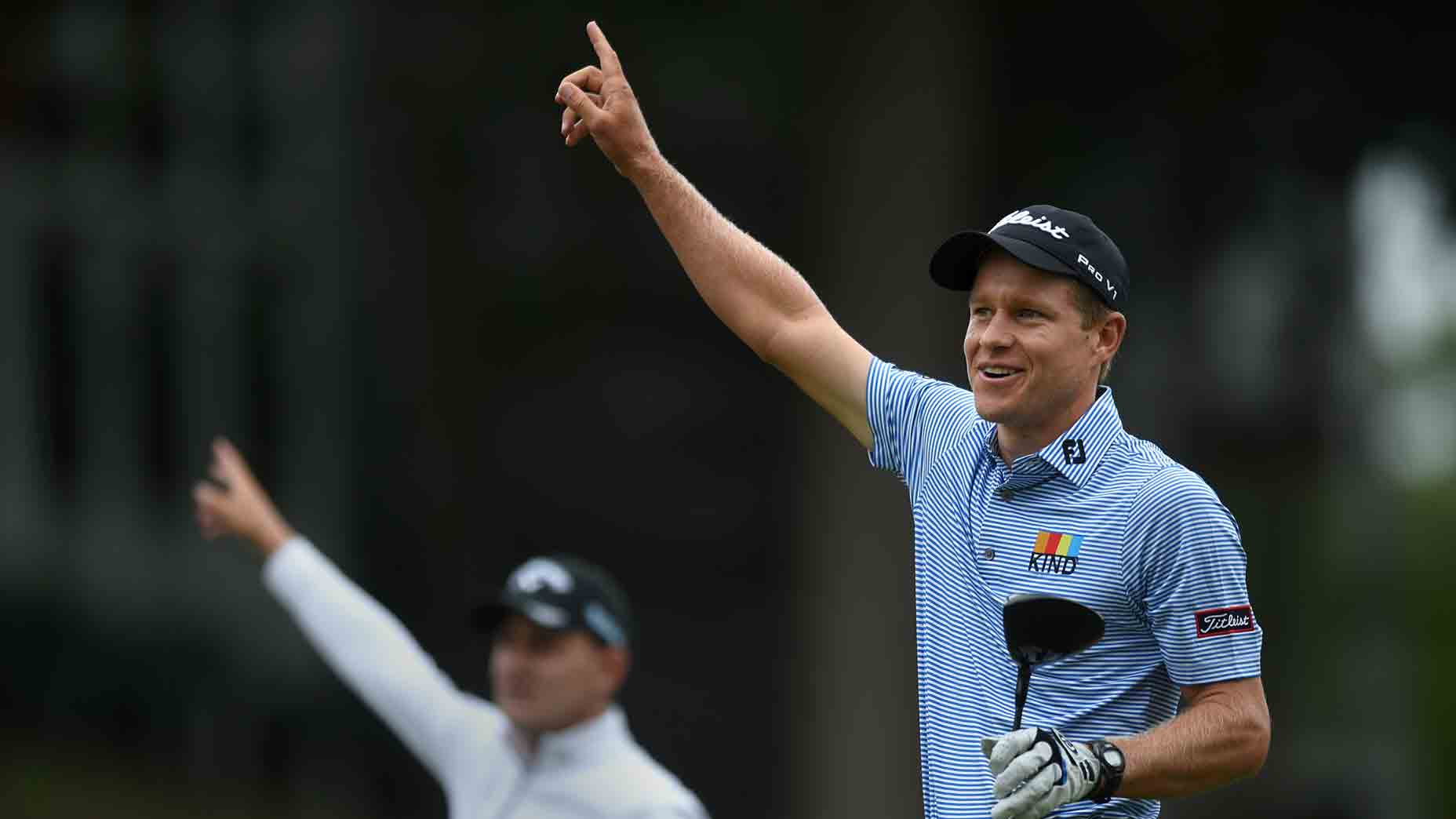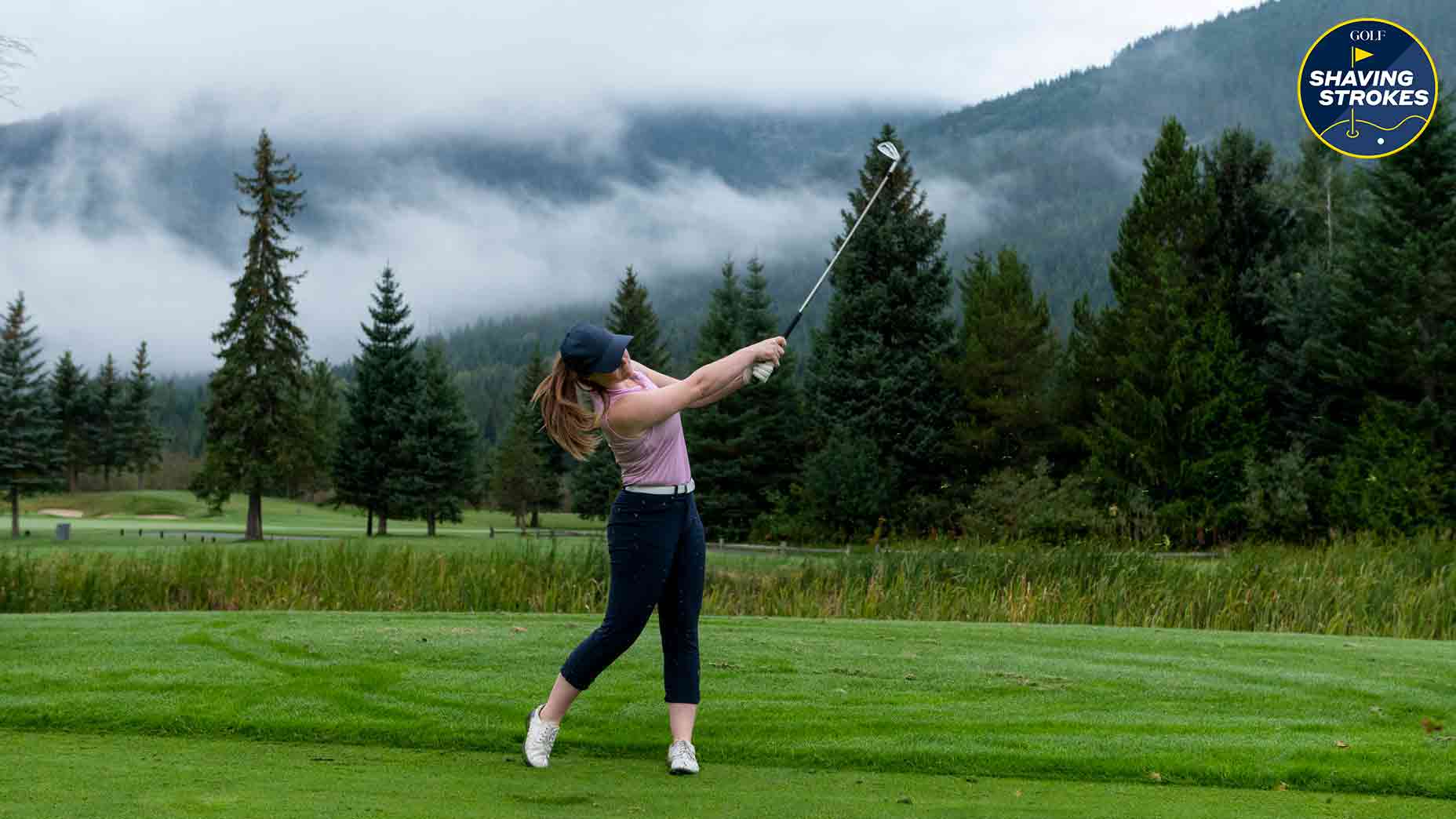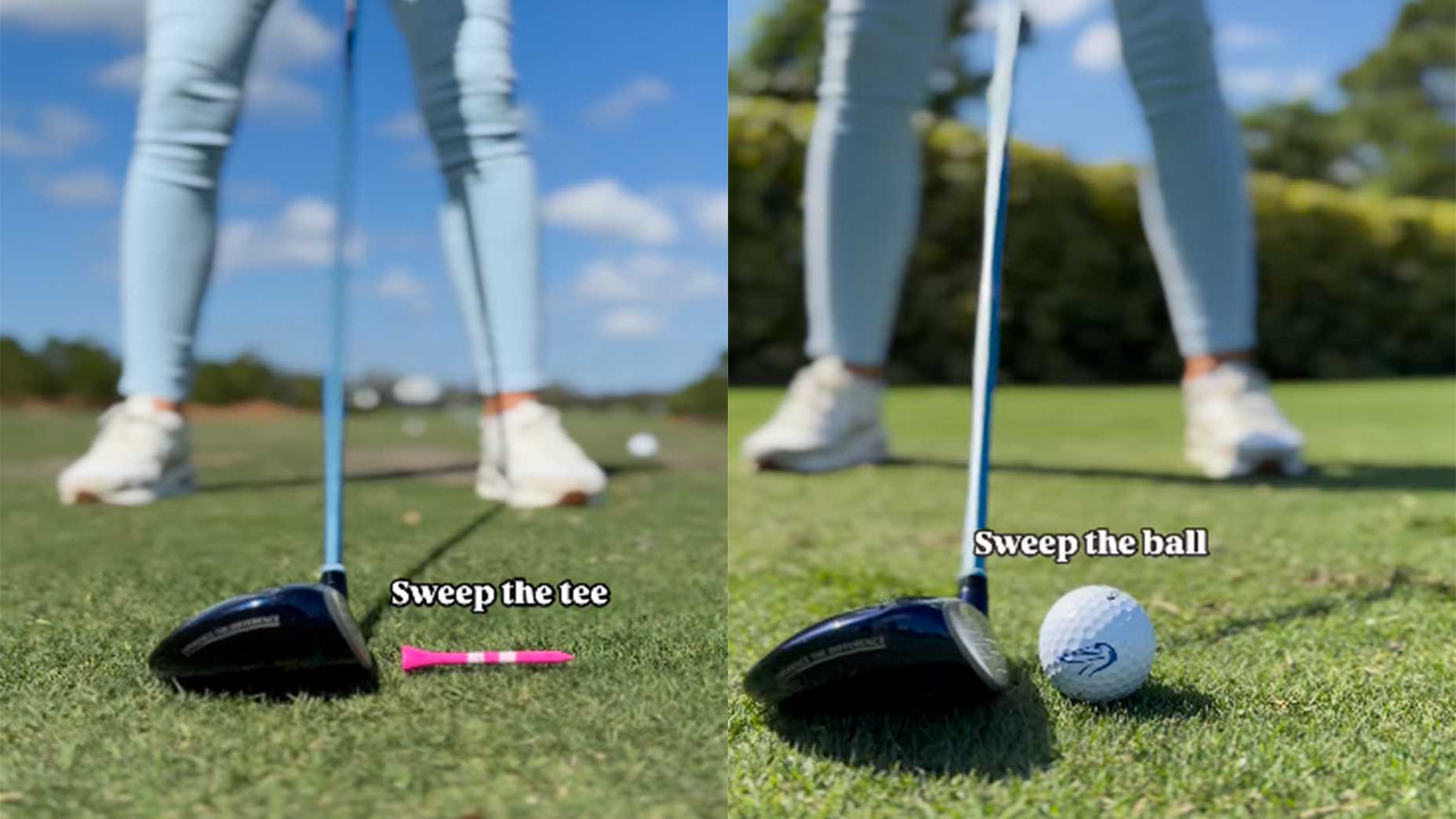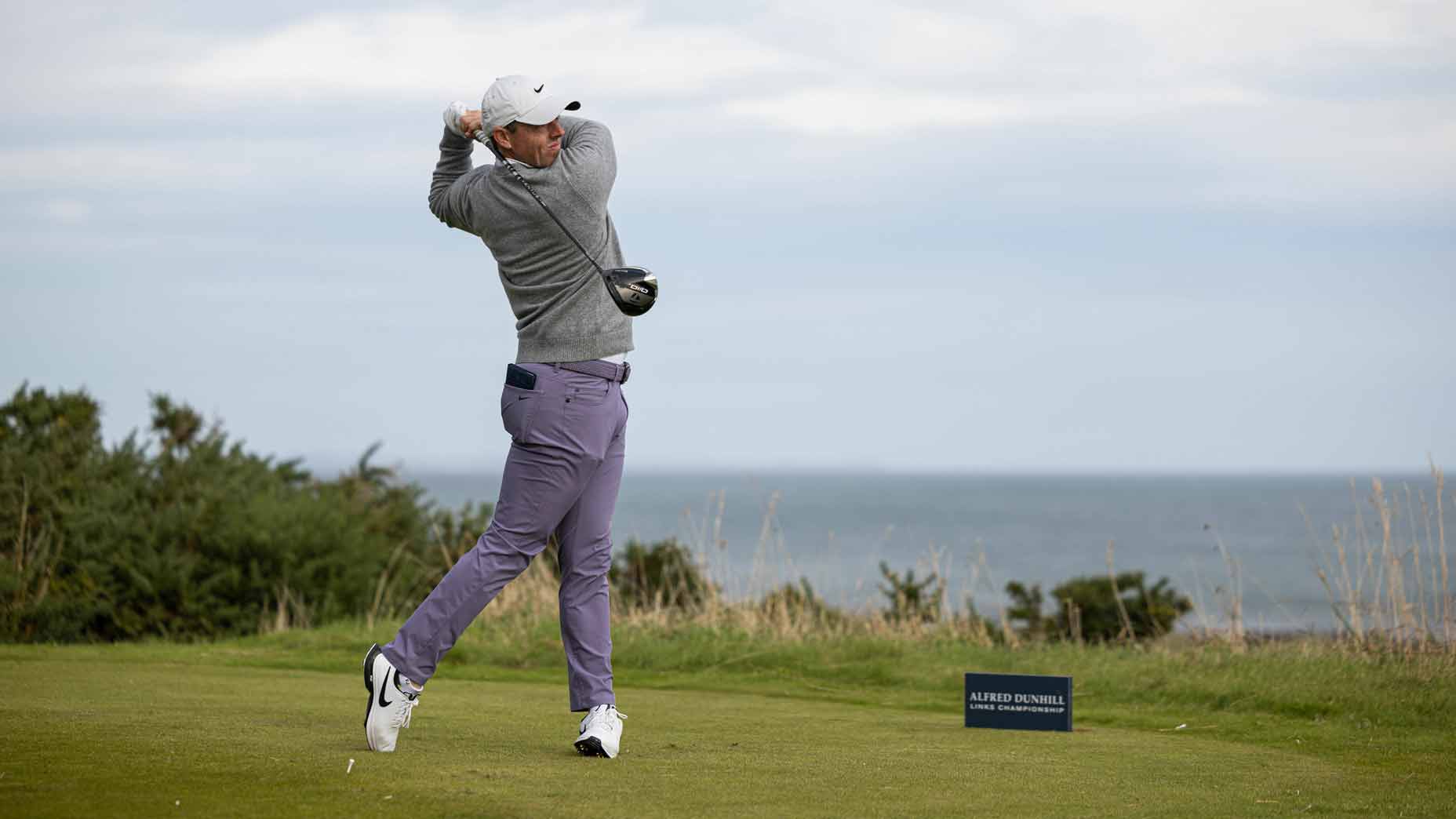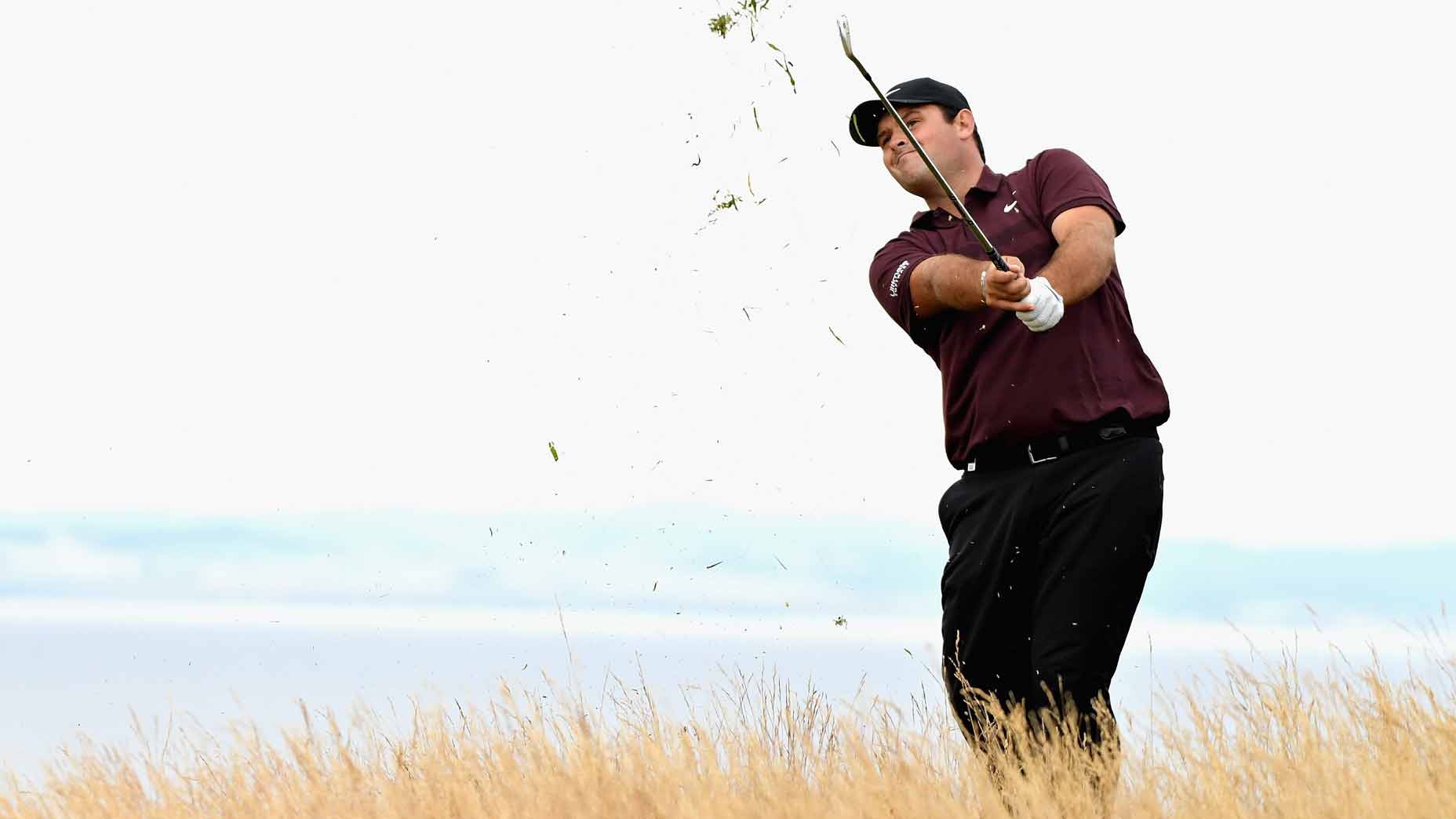In a well-executed stroke, some body parts (hands, wrists, arms, chest, shoulders) move, while others (feet, knees, hips, head, eyes) do not.
Managing the action (or lack thereof) is critical — otherwise, you’ll have little chance of starting the ball on your intended line, to say nothing about rolling it at the correct pace based on your read and putt length.
The key is to marry or coordinate all the moving parts so that they work in concert — not against each other — during your stroke. Doing so makes returning the putter to its most optimal position at impact a breeze.
The goal is to strike the middle of the ball with the middle of the putterface while returning the shaft to its original 90-degree start position and the face square to your start line. Begin with the moves below. By nailing these steps, you’ll make pure, square contact second nature, and kick those round-killing short misses and three-putts to the curb for good.
SETUP
Let your arms hang softly from your shoulders, and grip the club so that the shaft sits 90 degrees to the ground. Check your hands — you should notice a small “cup” in the back of each wrist. 
BACKSTROKE
Think about moving everything — club, hands, arms, etc. — together. You’ll know you’re doing it correctly if your front shoulder moves slightly down and around and your “cups” remain intact.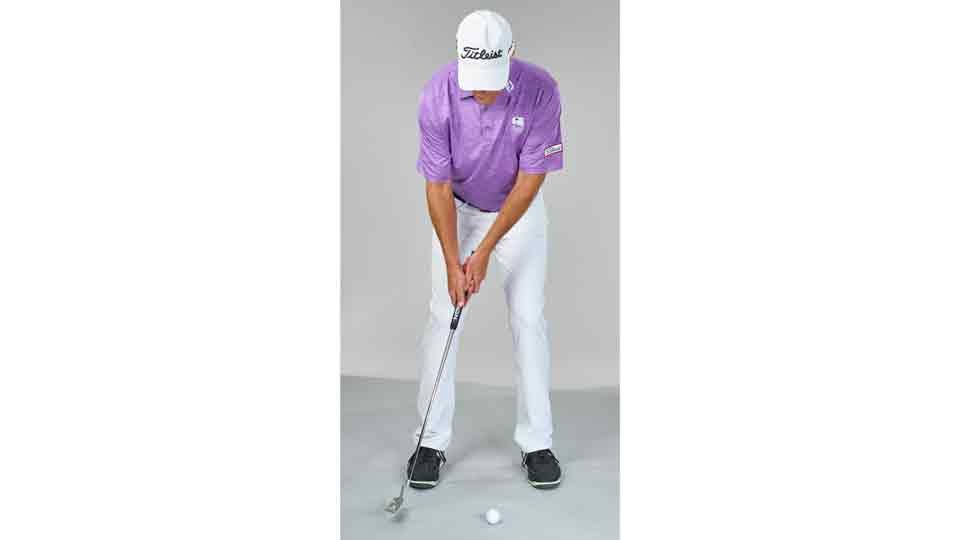
THROUGH-STROKE
Move your left shoulder in a smooth, uninterrupted arc up and around your head as your arms and the club swing through impact and beyond. Keep those cups in place!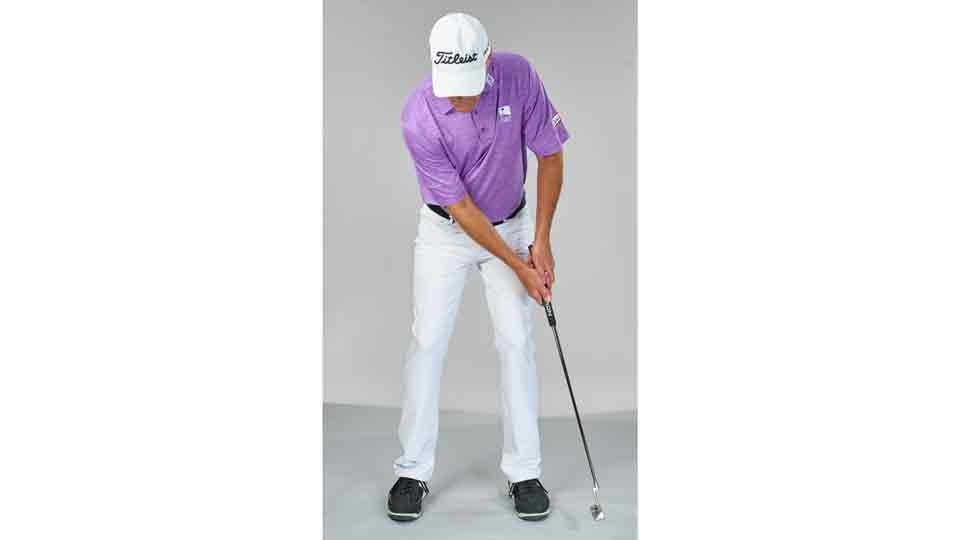
NO! DON’T DO THIS
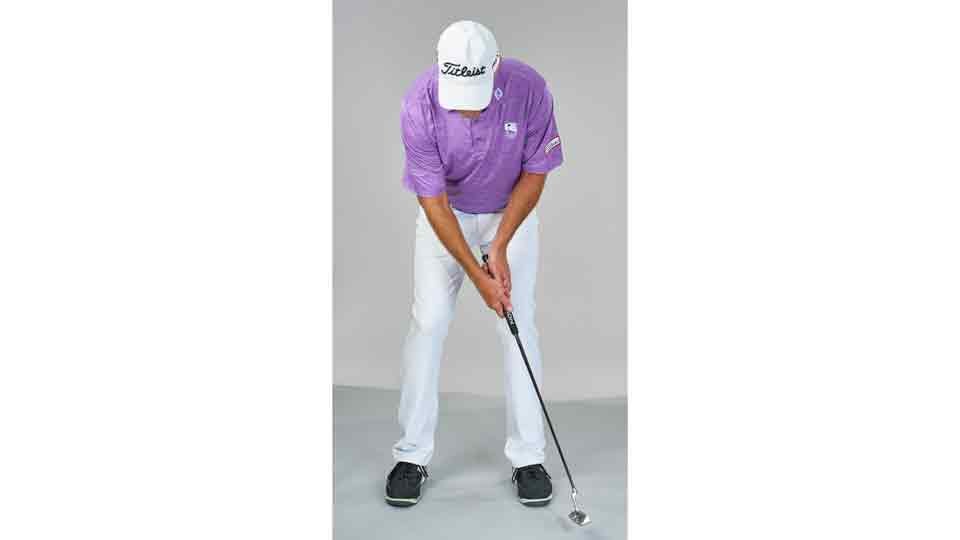
Losing your right cup is a common mistake, and it’s fueled by stopping your shoulders before you finish your stroke. Stop everything at the same time! When you do, your stroke is money.


